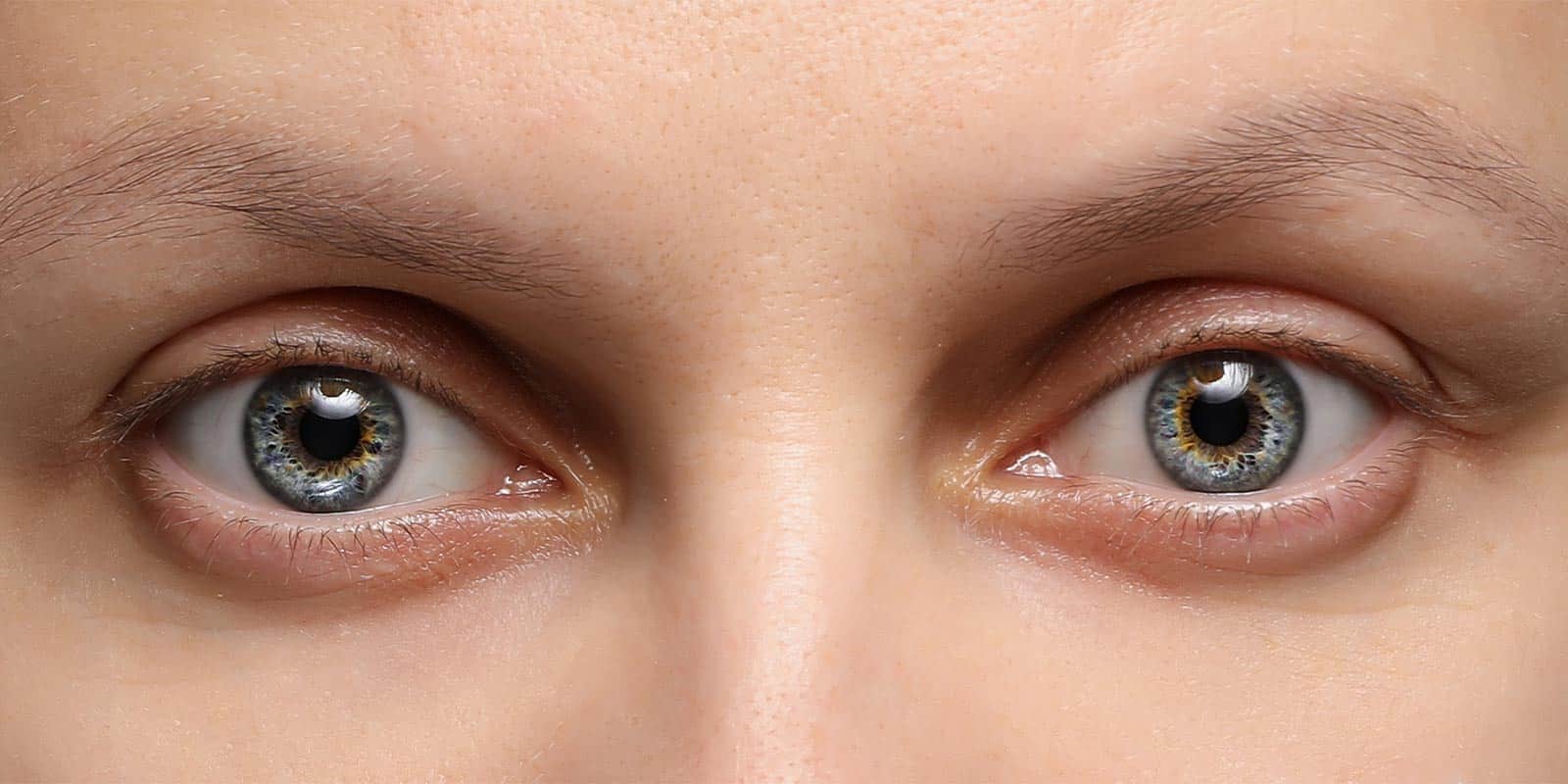Dilated Pupils: Drugs That Cause Them

- Dilated pupils, also called mydriasis, can be caused by many factors, including recreational, prescription, and over-the-counter drug use.
- Causes unrelated to drugs may also be responsible for dilated pupils, including migraines, head injury, and sexual arousal.
- Pupils are considered dilated when their diameter exceeds the normal range (typically >4 mm in bright light)
- Illicit drugs that cause pupil dilation include methamphetamines, magic mushrooms, LSD, and ecstasy.
- Prescription and over-the-counter drugs that cause pupils to dilate include antihistamines, antidepressants, and anticonvulsants.
- Medical attention may be necessary if pupils aren’t responsive to light, if one pupil is bigger than the other, or if the person is experiencing other stroke symptoms.
- Pupil dilation doesn’t typically require treatment, but in severe cases, contact lenses, surgery, or substance use treatment may be recommended.
- Other signs of substance use disorder include unsuccessful attempts to reduce or stop drug use, dangerous behaviours, and withdrawal symptoms when not using the drug.
- Addiction and recovery treatment is available for SUD, including medical detoxification as well as inpatient and outpatient services.
Many different types of drugs cause dilated pupils, also known as mydriasis. This includes illicit drugs like ecstasy, cocaine, and LSD, as well as certain prescription drugs and over-the-counter drugs. Medical conditions and environmental factors can also cause dilated pupils, so it’s not always a sign of drug use or abuse.
What Are Dilated Pupils?
Dilated pupils are pupils that are wider than usual. When the black center of a person’s eye becomes larger than usual, their pupils are said to be dilated. Dilated pupils range from about 4 to 8 millimeters in diameter compared to a normal pupil size, which is about 2 to 4 millimeters. [1]
Pupils naturally dilate in dim lighting, allowing more light to enter the eye, thus helping a person see better. It also works the other way around. That is, when you’re in a brightly lit environment, your pupils shrink or “constrict” to prevent too much light from impairing your vision or causing damage to the eye. Pupils that don’t dilate or constrict in response to light are not working correctly and may point to an underlying health condition.
To identify dilated pupils, try to determine if the black center of your eye is bigger than the normal range (typically >4 mm in bright light). If it is, then the pupils are dilated. Dilated pupils are usually a temporary condition that doesn’t require treatment. In some cases, they can indicate a larger problem, such as substance use disorder, for instance.
What Do Dilated Pupils Feel Like?
Many times, dilated pupils are only noticeable to other people. There may be no other physical symptoms associated with pupil dilation. In some cases, the person with dilated pupils may also experience headaches, blurry vision, or increased sensitivity to light. Suppose you or a loved one has dilated pupils and also begins to experience symptoms like dizziness or confusion. In that case, it may be necessary to seek medical attention, as these can be signs of a stroke.
Other Causes of Dilated Pupils
Drugs aren’t the only thing that causes dilated pupils. Other causes include: [2]
- Brain injury
- Sexual arousal
- Eye drops during an eye examination
- Adrenaline
- Eye injury
- Head trauma
- Ocular migraine
Recreational Drugs that Cause Pupil Dilation
Pupil dilation is one of the many effects of drugs on the body. Some of the drugs often used recreationally that can cause dilated pupils include: [3]
- Ecstasy (MDMA)
- LSD
- psilocybin mushrooms
- Cocaine
- Methamphetamines

Medications Causing Pupil Dilation
Other drugs, including prescription medications and over-the-counter drugs, can also cause your eyes to dilate as one of their side effects, including: [4]
- Antihistamines
- Antidepressants
- Atropine
- Anticonvulsants
- Parkinson’s disease medications
- Medications for nausea
- Botulinum toxin
These medications may contain substances known as anticholinergics that affect muscles in the iris and lens, causing your pupils to dilate. [5]
Is Pupil Dilation Dangerous?
Pupil dilation isn’t usually dangerous on its own. If you’re experiencing frequent pupil dilation or pupil dilation in combination with other symptoms, it may be a good idea to contact your healthcare provider. Other indications that you might need to call a doctor include: [6]
- Signs of a stroke, such as dizziness, confusion, and headache
- One pupil is larger than the other
- Long-term dilation that doesn’t go away
- Sudden pupil dilation for no apparent reason
- Pupils aren’t responsive to light
Treatment for Pupil Dilation
Dilated pupils are usually temporary and not a cause for concern. In some cases, though, your ophthalmologist might recommend treatment to repair vision or to prevent problems before they occur. Possible treatment approaches might include special sunglasses, a certain type of contact lens, or, in severe cases, surgery. [7] If pupils are continually dilated due to drug abuse, substance use treatment is recommended.
Other Signs of Substance Use Disorder
In some cases, dilated pupils can be a sign of substance abuse or substance use disorder (SUD). If you or a loved one has a drug problem, there may be other signs as well. Some additional signs of SUD may include: [8]
- Intense cravings for a drug
- Spending too much time or money obtaining the substance
- Taking higher doses of a drug than intended
- Continuing to use the drug despite it worsening a physical or mental health condition
- Continuing to use the drug despite it causing problems at home, work, or school
- Participating in dangerous activities while under the influence
- Failing to meet responsibilities or deadlines because of drug use
- Building a tolerance to the drug
- Experiencing withdrawal symptoms when abstaining from the substance (i.e., developing a physical dependence).
- Using the drug every day or several times a day
- Unsuccessful attempts to stop using the drug or cut back
If you or a loved one is experiencing two or more symptoms of substance use disorder, it could indicate a mild case. Four or more symptoms could point to moderate substance use disorder, and more than six symptoms may mean there’s a severe substance use disorder that requires immediate treatment.
Even mild cases of substance use disorder warrant care. These conditions don’t normally get better on their own, and they usually get worse over time. The sooner you seek treatment, the easier recovery might be.
Consider Addiction Treatment
If pupil changes, like pupil dilation, are the result of a substance use disorder, it may be essential to reach out for support. Drugs that cause this side effect are typically potent drugs that aren’t easy to come off of on your own. Fortunately, evidence-based treatment options are available, including medical detox, inpatient treatment, intensive outpatient care, and relapse prevention, for example. Don’t lose hope; help is just a call away.
Frequently Asked Questions About Pupil Dilation Drugs
